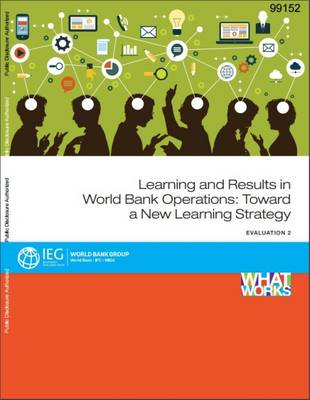How well has the World Bank generated, accessed, and used learning and knowledge in its lending operations, and what is the scope for improving how it does so? As the world s leading development finance agency, the World Bank has, in principle, an unrivaled opportunity to promote learning and knowledge sharing about development effectiveness. Bank lending has fallen in relation to developing country gross domestic product. To remain relevant, the Bank must improve the quality of its services; learning and knowledge offer an important competitive edge. The challenge is to become better at learning from lending, responding more quickly to lessons from experience, and being more alert to the creation and use of cutting-edge knowledge.
This first of two Independent Evaluation Group (IEG) evaluations on this topic, pulls back the curtain to reveal the perspective from within the World Bank, with findings drawn from a wide range of sources: the academic and management literature on organizational learning; Bank strategies and studies; Bank employee surveys; an IEG survey of Bank staff; interviews and focus groups, including consultations with other development agencies; IEG reviews of project documents as well as project evaluations and studies; and aggregate data on the learning section of the annual Overall Performance Evaluation of Bank staff. It shows that although, in general terms, the staff perceive the Bank to be committed to learning and knowledge sharing as attested by surveys with respect to the particular case of learning in lending, the culture and systems of the Bank, the incentives it offers employees, and the signals from managers are not as effective as they could be. The Bank s organizational structure has been revamped several times, notably in 1987 and 1996, when the shift to the matrix organization took place.
These changes have not led to a significant change in learning in lending because they touched neither the culture nor the incentives. It remains to be seen if the latest structural change the introduction of Global Practices will avoid past pitfalls and be more effective in creating the right culture and incentives for learning and knowledge sharing
- ISBN10 1464806349
- ISBN13 9781464806346
- Publish Date 30 January 2017
- Publish Status Cancelled
- Publish Country US
- Imprint World Bank Publications
- Format Paperback
- Pages 178
- Language English
